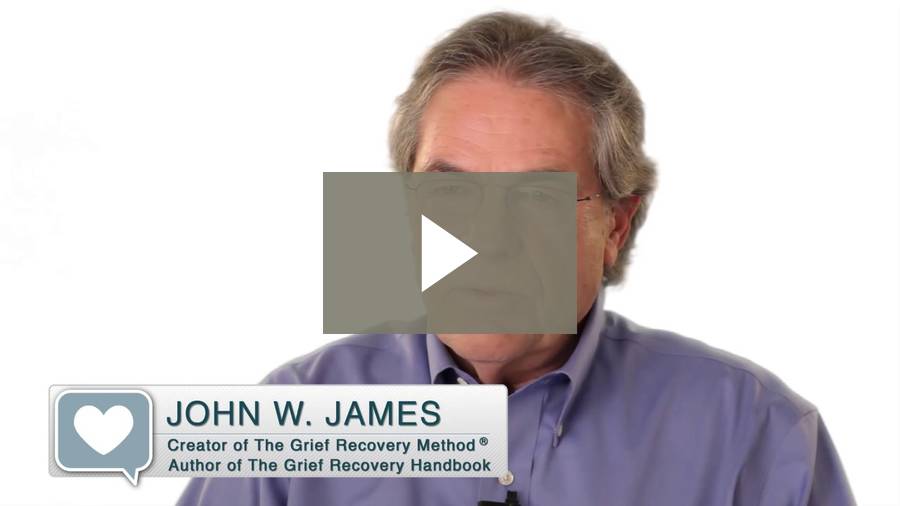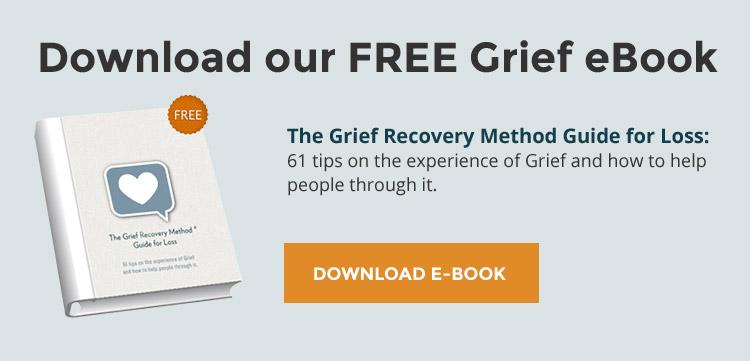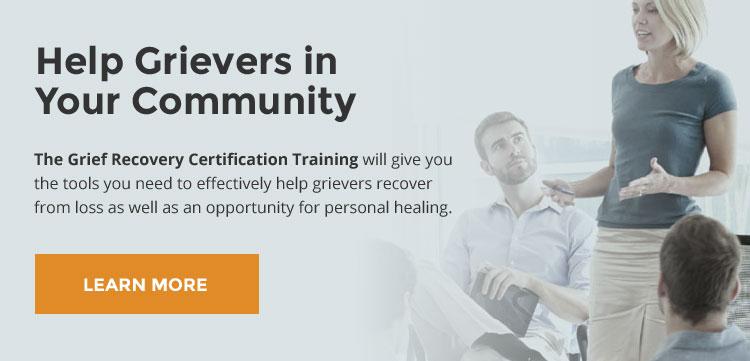A man falls to the sidewalk, clutching his chest. A passerby witnesses the scene, goes to the man, leans down and whispers,
"I’m going to the book store to get a book about heart attacks. I’ll be back in a little while to help you."
Sounds silly, doesn’t it? And dangerous! Let’s try another version.
Someone goes to visit a friend who has recently experienced the death of a loved one. The friend is having a very hard time dealing with the avalanche of emotions caused by that loss. The pal says, "I don’t know what to say to you, so I’m going to go right over to the local community college and sign up for the next grief recovery course they have, and I'll be back in a few months to help you."

More likely, the well-meaning friend will recite a list of clichés like: "Don’t feel bad, he’s in a better place," or the well-intended but unhelpful comment, "I know how you feel," or the classic, and inaccurate, "It just takes time." The only position that time has in the equation, in either scenario, is the speed at which effective help is or isn’t delivered. Whether it is a physical heart attack or an emotional one, the consequences of non-action or incorrect ideas can be fatal or at least life-altering in the negative. We take CPR courses BEFORE a tragedy occurs, so that we can be of assistance in the time of an emergency. That way, faced with certain kinds of life-threatening circumstances we will already know what to do. We learn the Heimlich maneuver BEFORE we need to apply it, so if someone is gagging we can do something immediately that can and does save lives.
Most homes and offices have first aid kits filled with all manner of medical supplies that can be accessed at a moment’s notice - often critical moments, at that. Many of us carry small, portable first aid kits in our cars so we will be prepared should anything happen while we are on the road. We are very concerned about our own physical well-being and that of those we love, so much so, that over the past fourty years we have developed an emergency phone system known as 911. We are willing to go to great lengths to acquire knowledge and to be prepared in the event of a medical emergency.
Why is it then that we are so unwilling to talk about and learn how to deal with the emotional emergencies created by major grief and loss events? Why have we buried our collective heads in the sand, and made the topic of recovery from grief or emotional loss the most off-limits topic for conversation in the English speaking Western world? Please notice that we did not say that talk about grief or death or even divorce is off-limits, we said that talk about recovery from grief is out-of-bounds. The events of 9/11 gave ample evidence that as a people we are ill-equipped to deal with grief. We watched in horror as politicians and other public figures gave inaccurate advice in print and over the airwaves about how to deal with emotions caused by that tragedy. We were stunned but not surprised to hear well-meaning, but ill-informed people spouting dangerous advice on how parents should or should not talk to their children about what had happened. Loss is inevitable. Perhaps we all need to sign up for an EMOTIONAL CPR course, and learn what to say and what to do BEFORE the next emotional emergency that affects our lives. Emotional CPR could be just as life saving as any emergency medical knowledge we’ll ever acquire.
If you found this article helpful, we suggest you also consider reading:
We also have several free eBooks you can download, or you can visit our Grief Blog to search for articles on topics of interest to you. You can also subscribe to our blog to receive new articles as they are published.




























Add new comment